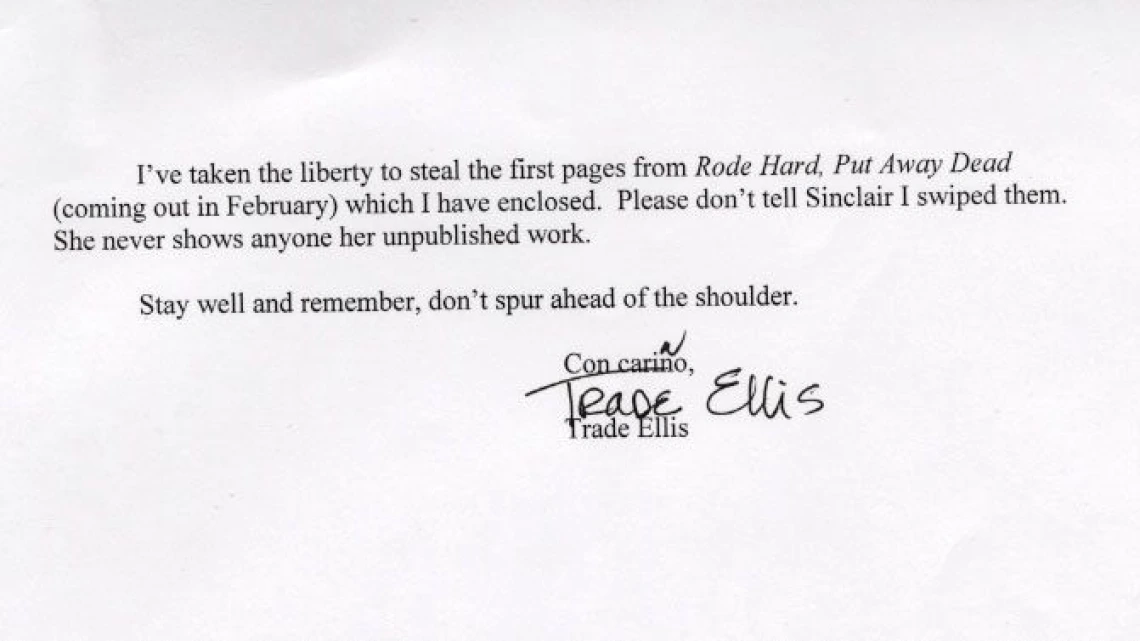Sinclair Browning papers

Letter by Trade Ellis discussing Rode Hard, Put Away Dead by Sinclair Browning, 2000.
Collection area: Literature
Collection dates: 1942-2009 bulk (bulk 1997-2000)
Papers 1942-2009 (bulk 1997-2000): This collection consists of the personal and professional papers of Sinclair Browning. The bulk of the material consists of the materials used and generated for the writing of the Trade Ellis mystery series, specifically The Last Song Dogs; The Sporting Club; Rode Hard, Put Away Dead; Crack Shot; and Traggedy Ann. The remaining material relates to several self-published novels, unpublished screenplays, and various nonfiction articles. The materials include newspaper and magazine clippings about current events, interviews with professionals, correspondence from both editors and fans, and varied manuscript drafts. There are also publicity materials including notices for book signing events, book reviews, and advertisements.
Zerilda Sinclair Browning (b. November 17, 1946) is a Southwestern mystery writer and self-ascribed “dirty-shirt” cowgirl. A native of California, she moved to Southern Arizona as a child and grew up on a family cattle ranch. She has spent the majority of her life as a cattle rancher and team penner. Before writing the Trade Ellis series, she co-authored Lyons on Horses(Doubleday, 1991) with horse trainer John Lyons. In 1999, she published the first Trade Ellis mystery, The Last Song Dogs. Her stories feature Trade Ellis, a part-Apache private investigator and rancher. Browning is known for her vivid descriptions of Southwestern culture and landscapes as well as her use of real-life murders as foundations for her plots. Her books have been nominated for both the Shamus and Barry awards, and she was a nominee for the Arizona Arts Award. She currently lives in Northern Arizona.
A collection guide explains what's in a collection. New to using our collections? Learn how to use a collection guide.
Collection guideAccess this collection
Visit us in person to access materials from this collection. Our materials are one-of-a-kind and require special care, so they can’t be checked out or taken home.
How to cite
Learn how to cite and use materials from Special Collections in your research.
